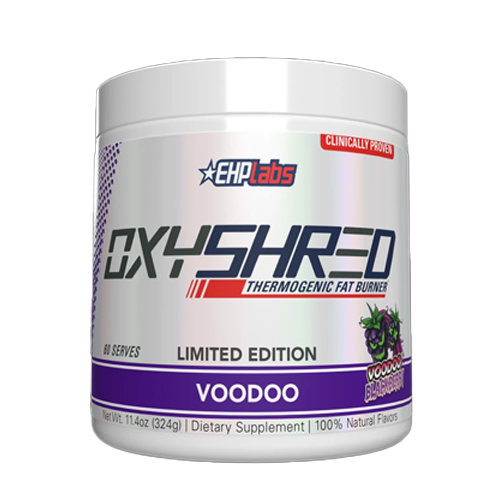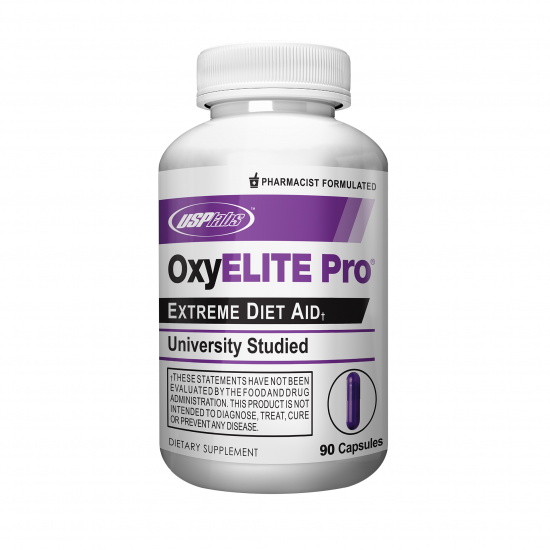In our quest for effective weight loss solutions, we often stumble upon a plethora of supplements promising to enhance our efforts. Among them, fat burners stand out as a popular option, claiming to bolster our metabolism and trim away those stubborn pounds. But what do fat burners actually do? As we dive into the heart of these supplements, we’ll explore the array of components they boast, from caffeine to L-carnitine and green tea extracts to the exotic-sounding raspberry ketones. Each ingredient wields its own mechanism, aiming at processes such as thermogenesis and lipolysis—essential functions in upping our calorie expenditure and breaking down fat.
However, we must recognize that fat burners are not magic pills. For those pondering, “Do fat burners actually work?” we’ll address the importance of coupling them with a nutritious diet and consistent exercise. Only then can these supplements provide the complementary support our bodies may need. And while navigating through the myriad options, we’ll confront the crucial topic of fat burner safety, because an excess of certain substances like caffeine can pose health risks, emphasizing the need to make informed choices about what we put into our bodies. With this in mind, I strongly encourage consulting with healthcare providers to assess which, if any, fat burner aligns with your physical condition and overall health goals.
As we progress, we aim to offer an insightful, SEO-optimized overview that answers pressing questions: “What is a fat burner?” and “How does burning fat work?” Furthermore, we will look beyond supplements to suggest alternative strategies that can enrich your weight loss journey, from upping your water intake and tailoring your nutrition for workouts, to integrating strength training for a more profound caloric burn. So, join us as we unpack exactly what fat burners really do and how they fit into the bigger picture of a balanced, healthy lifestyle.

Fat Burners What Do They Do
Delving into the mechanics behind fat burners, we uncover that they principally aim to ramp up our resting metabolic rate and expedite the elimination of body fat. However, the pressing question ‘do fat burners actually work’ cannot be answered with definitive certainty due to a lack of substantial evidence backing their proclaimed effects. They are theorized to assist by:
- Blocking the absorption of fats or carbohydrates,
- Curbing appetite to reduce caloric intake,
- Speeding up the body’s metabolism for increased energy consumption.
The promise of fat burners contributing to weight loss takes form through the elevation of blood pressure and an overall boost in energy expenditure. This process can manifest in gradual weight loss over time, aligning with how burning fat works fundamentally.
Active Formulations and Weight Loss
Within their complex formulations, fat burners commonly feature a cocktail of active substances with specific roles in the weight loss game:
- Caffeine: Undoubtedly known for its metabolism-boosting properties and its capability to encourage the body to utilize fat as a fuel source.
- Green tea extract: Harnessing the liver-processing prowess of plant-derived polyphenols for effective fat metabolization.
- L-Carnitine: A vital component in mobilizing body fat, ensuring it’s available to be burned for energy.
- L-Tyrosine: Known to upsurge heart rate and body temperature, it lends a hand to our systems by scaling up caloric burn.
- Sinetrol: A non-stimulant option hailing from citrus fruits, it’s garnered attention for promoting fat loss in a more natural manner.
- Conjugated Linoleic Acid (CLA): Multitasking by boosting fat burn, reinforcing lean muscle maintenance, and even taking a stand against cancer cells.
We must be wary of the potential downsides, however. Ingredients such as Yohimbe, though effective, can herald a host of unwanted effects ranging from headaches to more serious conditions like kidney failure and heart issues. This underscores why ‘what is fat burner’ requires our scrutiny about ingredients and their side effects.
Furthermore, the reality that fat burner supplements aren’t regulated by the FDA means that we could be ingesting unknown substances that could have unpredictable reactions in the body. We’ve seen ingredients once commonly found in these supplements, like ephedra, now outlawed due to their harmful side effects, including liver damage.
In this landscape of uncertainty and potential risks, it’s why we often emphasize to those curious about ‘what do fat burners actually do’ the significance of realistic weight loss expectations. We should anchor our goals in what’s sustainable—typically losing 1-2 pounds per week is a healthy benchmark for the average individual. Exceeding consumption, especially of stimulants like caffeine, could actually counteract workout recovery, leading to fatigue and burnout.
When considering the role of thermogenesis and lipolysis—fat burners can indeed offer a hand. Yet, it’s pivotal to recognize that these supplements interact uniquely with every individual. We recommend trialing each fat burner separately at the outset to discern personal efficacy and tolerance. And as we ponder the broad question ‘what do fat burners really do?’, it’s paramount to understand that these supplements are intended to complement, not replace, a robust diet and exercise regime.
Common Ingredients in Fat Burners
Peeling back the label on popular fat burner supplements, we uncover a lineup of standard players in the game of metabolic boosters and hunger suppressors. Each has its particular role in the complex biochemistry of our bodies, with the combined aim of nudging us towards our fat loss goals. Let’s break down their contributions and the concerns around them.
- Caffeine: It’s no secret that many of us rely on caffeine to kickstart our mornings, but in the context of fat burners, its role goes beyond just banishing sleep. Caffeine is lauded for its ability to rev up the metabolism and facilitate the body’s fat-burning processes, though its effects can diminish over time as the body becomes tolerant. But we must tread carefully; too much caffeine can disturb our sleep cycle and, when consumed excessively, lead to jitters or rapid heartbeat.
- Green Tea Extract: This ingredient comes with a splash of hope and a dosage of caution. The catechins in green tea extract, especially EGCG, stoke the fat oxidation flames and may decrease fat absorption—but going overboard might put the liver at risk. Moderation and medical advice are your best companions when considering this extract.
- Carnitine and L-Tyrosine: Carnitine, while essential for transporting fats into cells for energy, might not be the weight loss catalyst when taken as a supplement due to poor absorption. L-Tyrosine, on the flip side, could contribute to a slight uptick in our metabolic furnace by supporting the thyroid, but the evidence of notable weight loss is thin.
- Soluble Fiber: Often underappreciated, soluble fiber might not have the flashiness of other fat burner ingredients, but it plays a steady hand in appetite control and reducing fat uptake from our meals. Consider it the unsung hero of satiety, helping us feel fuller, longer, which can lead to a natural reduction in calorie intake.
- Yohimbe & CLA: While Yohimbe has been spotlighted for its potential fat-burning properties, it brings along a baggage of side effects that might be too hefty for some, including dangerous cardiovascular reactions. CLA can strut its stuff in preserving muscle mass during weight loss, but it’s been linked to unwanted outcomes like liver fat accumulation and inflammation—there’s more here than meets the eye.
- The New Faces – Sinetrol and ThermoHeat: ThermoHeat titillates as a fat burner free from harsh stimulants, while Sinetrol, derived from citrus fruits, nudges fat cells through polyphenols. They form part of the new wave of fat burning options, presenting as alternatives for those wary of traditional stimulants.
In our investigation of ‘how does burning fat work’ and ‘what do fat burners really do’, it’s imperative to recognize that while these ingredients can contribute to an overarching strategy for fat loss, they are but one piece of the puzzle. Diet is the lion’s share of any weight loss journey, with exercise following behind. Fat burners fit into a narrow slice of the pie, acting as potential catalysts rather than cure-alls. Moreover, as they are not FDA-regulated, the mantra ‘buyer beware’ should be heeded. Before bringing these supplements into your regimen, discussing your plans with a healthcare provider is prudent to ensure they don’t clash with other medications and that you’re using them safely within your personal health context.
Buy Best DMAA Alternative

With its unique blend of PEA alkaloids, this extract increases metabolic function, leading to enhanced fat and weight loss. Get your supply from Racer Ephedra, the trusted source for senegalia berlandieri products.
Pros and Cons of Fat Burners
In our exploration of fat burners, considering the pros and cons is crucial to understanding their role in weight management. Here’s a breakdown that sheds light on what they may offer and the concerns that accompany them:
Pros:
- Metabolic Boost: Some individuals report that fat burners help increase their resting metabolic rate, leading to enhanced fat burning when complemented with diet and exercise.
- Appetite Suppression: Ingredients such as soluble fiber can curb appetite, potentially reducing overall caloric intake and helping with weight management.
- Energy Increase: Stimulants like caffeine can elevate energy levels, potentially improving workout performance and calorie burn.
Cons:
- Potential for Adverse Effects: For those already managing high blood pressure, the blood pressure-elevating effects of fat burners can aggravate the condition, leading to risks of hypertension.
- Non-Regulated Ingredients: As these supplements are not FDA regulated, there’s uncertainty about ingredient purity and concentration, raising concerns about liver damage and other health implications.
- Interactions with Medications: Fat burners may interfere with other medications, so it’s important to consult with healthcare providers before starting them.
- Temporary Results: Often, weight loss results from fat burners may not be sustainable, and discontinuing them could lead to weight regain.
- Potential Negative Side Effects in Men: Quick weight loss claims may come with a cost, such as anxiety, insomnia, and in severe cases, cardiovascular events.
We’ve discussed how fat burners work and what they do, but it’s apparent that relying solely on these supplements is not without risks and limitations. The allure of quick results should be weighed against potential side effects and the fact that natural methods such as a balanced diet and regular exercise remain the gold standard for sustained weight loss. Remember, what fat burners actually do can vary greatly depending on the individual and should not be viewed as a substitute for healthier lifestyle choices.
Alternatives and Recommendations
Exploring alternatives to fat burners, we find several strategies that could be more effective for weight management and, in some cases, bear fewer risks. Incorporating these methods can lead to a sustainable, healthy lifestyle that not only contributes to weight loss but also enhances overall well-being:
- Strength Training: Hitting the weights isn’t just about building muscle; it’s a powerful tool for fat loss. Regular resistance training can lead to an average decrease of 1.46% in body fat while specifically targeting the reduction of both body fat mass and visceral fat. This is a fantastic approach that tones the body and boosts resting metabolism.
- High Protein Diet: We’ve all heard about the importance of protein for muscle repair, but it’s also pivotal for weight loss. By increasing our intake of high-quality proteins, we navigate beyond the realm of muscle preservation; we’re also able to keep hunger at bay, aiding in overall caloric control throughout the day.
- Quality Sleep: Yes, catching enough Z’s can do far more than just improve mood. Adequate rest moderates our appetite hormones, slashing the risk of unnecessary snacking and weight gain. This is often overlooked when asking ‘what do fat burners really do’, but it’s a natural cornerstone of weight control.
- Healthy Fats: While fat burners focus on burning fat, incorporating healthy fats into our diet can paradoxically help manage weight. Rich sources like olive oil and nuts have been associated with a lower risk of unwanted weight gain.
- Unsweetened Beverages: A simple swap from sugar-laden drinks to water or unsweetened green tea doesn’t just cut calories — it also fosters a habit that aligns with how does burning fat work best, by choosing sustainable lifestyle practices over quick fixes.
- Fiber-Rich Foods: Another key player is fiber, known for its role in weight management. Foods high in fiber protect against weight gain by enhancing satiety and promoting fat loss, tying back into the question of ‘do fat burners actually work’ as effectively as natural diet.
- Whole Grains Over Refined Carbs: In the quest to decipher ‘what do fat burners really do’, it’s necessary to consider the impact of carbohydrate sources. Opting for whole grains instead of refined carbs can support long-term, sustainable fat loss by keeping blood sugar levels stable and promoting a feeling of fullness.
Exercise and Options
Turning our gaze to activity-based options, incorporating these exercises can aid significantly:
- Cardiovascular Exercise: Traditional cardio exercises have a reputation for improving heart health, but they’re also stellar fat-burners. Regular aerobic activity is known to enhance lean muscle and decrease both belly fat and overall body fat.
- High-Intensity Interval Training (HIIT): For those querying ‘what do fat burners actually do?’ HIIT may provide an attractive alternative. This training style amps up calorie burn in a shorter timeframe and has been shown to increase afterburn more significantly than moderate exercise.
- Probiotics: Gut health plays a pivotal role in weight management. Probiotics may amplify fat burning, demonstrating the complex connections in our bodies that can influence weight loss without the need for a ‘what is fat burner’ supplement.
For long-term success, a transition to balanced eating that focuses on fresh fruits, vegetables, healthy fats, and whole grains proves essential, especially when considering ‘how does burning fat work’ in a way that can be maintained. We’re not just trying to lose weight; we’re learning to keep it off. Naturally, avoiding highly processed foods laden with refined carbs and sugars is a big part of this equation.
It’s clear that the gradual approach to weight loss isn’t just safer; it may be more effective in the long run. Rapid weight loss can tempt us with immediate gratification, but the risks and high chance of rebound make it a less desirable path. By implementing these alternatives, we can answer the question ‘do fat burners actually work’ with a lifestyle that supports long-lasting health, not just temporary fixes.
Conclusion
In conclusion, our exploration into the world of fat burners has illuminated their mechanisms, potential benefits, and inherent risks. We’ve seen that while they may offer a metabolic boost and support in appetite control, fat burners should not be viewed as a standalone solution for weight loss, and due diligence is necessary when considering their use. The emphasis on a holistic approach, encompassing a nutritious diet, regular exercise, and lifestyle modifications, remains paramount for sustainable weight management and overall well-being.
Ultimately, the decision to incorporate fat burners into one’s regimen should be made with careful consideration and professional guidance. As we close this discourse, let’s remember that true and lasting health is achieved not by searching for shortcuts, but by committing to the tried-and-true principles of balanced nutrition and consistent physical activity. It is in this steadfast journey, rather than the pursuit of quick remedies, that we find the essence of genuine and enduring transformation.
FAQs
- What are fat burners? Often, we come across this question from readers eager to understand the nature of these supplements. Fat burners are dietary aides that, akin to their name, claim to facilitate fat burning. They incorporate various mechanisms such as encouraging thermogenesis, aiding in lipolysis—where fat is broken down—appetite suppression, and blocking carbohydrate or fat absorption. Not to be overlooked are cellulite creams that purport to target fat externally.
- How do fat burners work? When we dissect how fat burners function, they typically engage in one or more of the following actions: ramping up your metabolic rate, quelling hunger pangs (thus decreasing caloric intake), hindering the assimilation of fats into the body, and initiating the process of lipolysis which leads to fat breakdown.
- What are common ingredients in fat burners? Our detailed examination of fat burners undeniably reveals a veritable smorgasbord of ingredients, each with its purported role in the weight loss narrative. We’re looking at a pantheon that includes the likes of caffeine, green tea extract, L-Carnitine, and chromium, among others—each claiming its stake in the ‘fat burners what do they do’ dialogue.
- Are fat burners regulated by the FDA? I often get asked about the regulatory status of these products and, unfortunately, fat burners do not fall under the strict purview of the Food and Drug Administration (FDA). This means a level of uncertainty can prevail regarding their safety and efficacy.
- Should I consult a healthcare professional before starting a fat burner? Absolutely, yes. Consultation with a healthcare professional is not just advisable, but imperative to preempt any possible adverse reactions or contraindications, especially if you are on other medications or managing certain health conditions.
- Do fat burners have side effects? It’s crucial to address this, as many of you ask ‘do fat burners actually work’ without considering the flip side. While they may support weight loss efforts to varying degrees, these supplements can also come with a litany of possible side effects ranging from the mildly inconvenient to the decidedly more severe, such as increased heart rate and even potential drug interactions.
- Can fat burners be taken with whey protein? In light of inquiries about combining fat burners with other supplements, it’s generally regarded as safe to pair fat burners with whey protein, which can help in sculpting muscle and optimizing body composition.
- Are fat burners safe for breastfeeding mothers? This is a big no; breastfeeding moms need to steer clear of fat burners. The presence of stimulants like caffeine could potentially affect the baby, and their impact on fertility and pregnancy remains a topic of concern.
- Can fat burners be taken while intermittent fasting? Although the query ‘what do fat burners actually do’ during fasting periods may arise, they can be utilized to help maintain lean muscle mass, aligning with the principles of how does burning fat work optimally.
- How long does it take to see results with fat burners? For those seeking immediate transformations, patience is key. Results take time to manifest, generally from a month to three, reflecting the comprehensive nature of what fat burners really do.
- What are common side effects of fat burners? It’s prudent to note that some may experience digestive-related side effects like constipation and nausea. These are not uncommon and should be considered when one ponders, ‘what does a fat burner do to my body?’
- What is the ideal time to take a fat burner? Pinning down the optimal time to ingest these supplements can vary, but the consensus often points to taking them in the early hours, before breakfast, to maximize their potential effects throughout the day.
- Do fat burners burn muscle? A frequent concern revolves around muscle loss when using fat burners. Rest assured, muscle tissue remains unaffected as these products primarily target fat stores.
- Can fat burners be used on a low-carb diet? Those on a low-carb diet might ponder if fat burners are a viable adjunct. The answer lies in ensuring that energy levels are adequately supported to sustain both workouts and daily activities.
- How effective are fat burners? Addressing efficacy, I want to emphasize that while some ingredients in fat burners may provide a slight advantage, the overarching way to achieve weight loss success is through behavior change, healthier eating, and increased physical activity.
- How long do fat burners stay in the system? Curiosity about the longevity of these supplements in the body is common. Depending on the specific ingredients, they can linger anywhere from an hour to several, with variations among different individuals.
- How quickly do fat burners work? Interestingly, you can feel the effects of fat burners quite promptly, often within minutes or up to 45 minutes post-ingestion, once again dependent upon the bioactive components.
- Can expired fat burners be taken? When fat burners expire, they don’t turn toxic but may lose some efficacy. Still, it’s generally safer to use products within their recommended shelf-life.
- Can fat burners be taken without working out? While you can take them sans exercise, coupling fat burners with physical activity and sound nutrition can tip the scales in favor of more substantial body composition changes.
- Can fat burners be taken on a keto diet? Yes, though one must be cautious to avoid those containing sugars which could disrupt ketosis.
- Can fat burners be taken with creatine? Marrying the use of fat burners with creatine is generally fine; they serve different purposes with creatine favoring muscle gain and performance enhancement.
- Can consuming caffeine while on fat burners lead to more fat being burned during exercise? Caffeine is a potent accomplice in your workout sessions and may augment the fat-burning process when combined with other fat-burning supplements.
- When is the best time to take a fat burner supplement? A strategic approach to timing may involve taking the supplement post-breakfast, to harness its potential throughout the day.
- Should fat burners be taken after a pre-workout supplement? It’s advisable to avoid stacking too many stimulants. Taking fat burners after pre-workout supplements could lead to an overabundance of stimulants, which might not bode well for the heart or nervous system.
- What is a pre-workout fat burner? This term caters to fat burners designed specifically to enhance fat metabolism and workout efficacy.
- How many calories do you burn on an average day while taking a fat burner? The calorie burn associated with fat burners will differ from person to person, molded by individual metabolic rates and other lifestyle factors.
- What are the common side effects of fat burners? Beyond what we’ve covered, it’s reiterated that common side effects like gastrointestinal discomfort are tied to these products, not to be overshadowed by the overarching need for a comprehensive understanding of ‘what do fat burners really do.
By addressing these myriad inquiries, I hope to provide you with a clearer panorama of ‘what do fat burners actually do’, empowering you with knowledge to navigate the weight loss supplement landscape. Remember always to consult with healthcare professionals and proceed with an informed sense of vigilance and realism on your fitness journey.
References
M.S. Westerterp-Plantenga, Green tea catechins, caffeine and body-weight regulation, Physiology & Behavior, Volume 100, Issue 1, 2010, Pages 42-46, ISSN 0031-9384,
https://doi.org/10.1016/j.physbeh.2010.02.005
Reza Tabrizi, Parvane Saneei, Kamran B Lankarani, Maryam Akbari, Fariba Kolahdooz, Ahmad Esmaillzadeh, Somayyeh Nadi-Ravandi, Majid Mazoochi & Zatollah Asemi(2019)The effects of caffeine intake on weight loss: a systematic review and dos-response meta-analysis of randomized controlled trials,Critical Reviews in Food Science and Nutrition,59:16,2688-2696,DOI: 10.1080/10408398.2018.1507996
Hursel, R., Viechtbauer, W. & Westerterp-Plantenga, M. The effects of green tea on weight loss and weight maintenance: a meta-analysis. Int J Obes 33, 956–961 (2009). https://doi.org/10.1038/ijo.2009.135
Dulloo, A., Seydoux, J., Girardier, L. et al. Green tea and thermogenesis: interactions between catechin-polyphenols, caffeine and sympathetic activity. Int J Obes 24, 252–258 (2000). https://doi.org/10.1038/sj.ijo.0801101





